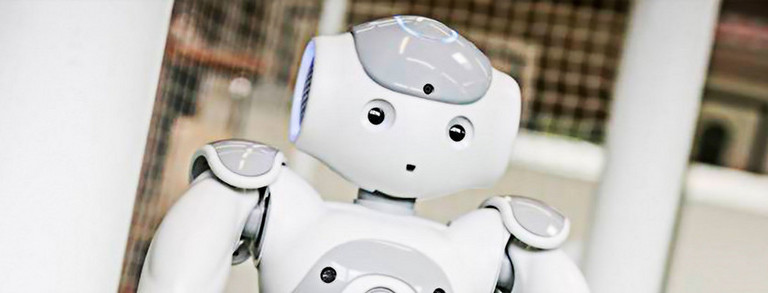More Efficiency in Drug Research through DNA Coding
- Research
- Top News
- Press Releases

The development of new drugs is a protracted and financially risky endeavor. It starts with the laborious search for a substance that must feature many indispensable properties in order to be suitable as an active ingredient. Dr. Andreas Brunschweiger and his research team at TU Dortmund University have developed a technology that can make this process far more efficient. The license agreement with Serengen GmbH, a spin-off from TU Dortmund University, has now been successfully finalized.
To increase the likelihood of success when developing drugs, research departments in the pharmaceutical industry test millions of molecules for their effect. These test series, known as “screens”, run automatically, but are extremely complex in view of the large number of test substances. A far more efficient alternative is based on a trick: A specific DNA strand is attached to each individual molecule and serves as a barcode for it. In this way, a very large number of different molecules can be mixed and stored in a molecule library and tested as mixtures too, since the candidates for active ingredients can be later identified thanks to the DNA coding. The technology developed for the DNA coding of chemical substances makes it possible to test in a significantly shorter time whether substances are suitable for further development.
New combination of natural and synthetic nucleobases
“As a storage medium, DNA is unsurpassed, and the technology of attaching DNA barcodes to molecules in order to synthesize DNA-encoded molecule libraries has been used in the search for active ingredients for some time. The problem, however, is that DNA is damaged in many chemical processes that would be attractive for the production of such molecule libraries and it then ceases to be readable as a barcode,” says Dr. Andreas Brunschweiger. That is why he developed the idea of chemically modifying the DNA in such a way that it is more stable and tolerates many reaction conditions. Together with his research team, Dr. Brunschweiger found a combination of natural and synthetic nucleobases that fulfill this purpose and are read off like natural DNA. With this coding technology, the spectrum of molecule classes for the design of DNA-encoded molecule libraries can now be significantly expanded.
Dr. Brunschweiger was able to register several patents, and in 2019 he set up biotechnology start-up Serengen GmbH together with partners. The company is based at TZDO, the science and technology campus in Dortmund, which is offering services in the field of early drug research on the basis of the patents. TU Dortmund University and PROvendis GmbH – a subsidiary of 28 universities – supported the start-up by agreeing on founder-friendly licensing conditions for the new screening technology. With the license agreement now in place, Serengen GmbH can put the invention into practice.
About the scientific publication
Contact for further information:




![[Translate to English:] Partner Four hands are holding the green logo of TU Dortmund University](/storages/tu_website/_processed_/1/d/csm_Partner_Nicole_Rechmann_KW_40b35bb3fd.jpg)




![[Translate to English:] Forschung An apparatus with tubes in a laboratory](/storages/tu_website/_processed_/0/c/csm_Forschung_Juergen_Huhn_cbd34afd6d.jpg)
![[Translate to English:] Studium Five students are sitting in a lecture hall. They are talking to each other.](/storages/tu_website/_processed_/c/9/csm_Studium_FelixSchmale_81d94adc86.jpg)





